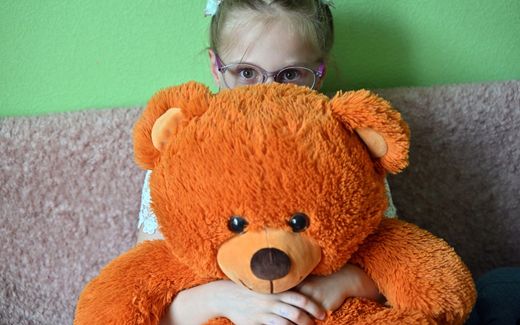How could we get more babies in Finland?

Photo Canva.com, EPA, Michele Esposito
Christian Life
Finland celebrated National Baby's Day on Friday, 27 September. The day has been celebrated since 2017, and this year's patron is a Lutheran Bishop, Jari Jolkkonen. Many parishes around Finland organise events on Baby's Day.
Stay up to date with Christian news in Europe? Sign up for CNE's newsletter.
Baby's Day is organised by BabyFinland, which is a pro-baby movement that defends the rights of babies in society and lets their voices be heard. The aim of BabyFinland is a Finland that delights in babies and where everyone supports the child-centred life of babies and families.
We are dealing with a very important issue because babies need to be spoken for. Finland needs more babies.
Native population
Last year, a record-low number of children were born in Finland. The total fertility rate for the whole country was the lowest on record since 1776. In 2023, 43,383 babies were born.
According to Statistics Finland, the total fertility rate was 1.26 per woman last year. For the population to renew itself, the total fertility rate should be around 2.1.
Around 16 per cent of births were to foreign-language mothers. Foreign-language speakers account for around 9 per cent of the population. The number of babies born to immigrant families is, therefore, clearly higher than that of the native population.
Individual-centred
There are many reasons for the low birth rate. According to researchers, factors such as economic insecurity, housing prices, the absence of a spouse, unemployment and government family policies all have an impact on the fertility rate in the country.
In addition, the culture has changed from community-centred to individual-centred, and in an individual-centred culture, you cannot be sure of the support of others. Loneliness of the people is a big problem in Finland nowadays.
Young women and men seem to find it difficult to find a suitable partner to start a family with. The expectations may be too high, or the myth that there is only one right person for you may prevent you from finding a good relationship. The different values of young men and women also complicate matters. According to research, young women tend to have more liberal values than young men.
Age
Another reason for the low birth rate is infertility. Many people might wish for a family but don't get one. This may be because they cannot find a suitable partner or because they start a family too late. Fertility rates fall sharply with age.
Many people do not want children early. They want to live a life of their own, prolonged youth, enjoy life, pursue hobbies, and travel. They want to build a career. The importance of work may have been overemphasised in our competitive society.
There is simply no room for children. Having a child is seen as too big a step. Perhaps as a young adult, you don't think about the fact that, for example, when you get older and retire, having a family is a great enrichment and gives you meaning.
South Korea
Another explanation for the sharp fall in the birth rate may be the fact that the last decade saw a surge in smartphone and social media use. According to a Finnish researcher, Anna Rotkirch, the increase in the use of smart devices is making relationships more fragile, and more fragile relationships lead to having fewer children.
A low birth rate is not only a problem in Finland but in many countries, regardless of family policy. It's a global problem. Africa may be the only continent where the birth rate is still high.
The lowest birth rate in the world is in South Korea. In 2023, there were only 0.72 children born per woman in South Korea. An interesting fact is that according to the Pew Research Centre, South Koreans lead the world in smartphone and social media use.
The Biblical call to have many children (Genesis 1:28) is not now being fulfilled in Finland or in many other countries. Children are a great blessing and gift of the Lord.
It is sad if our way of life is to be alone in front of our smart devices when we could be in the middle of family life.
Related Articles










